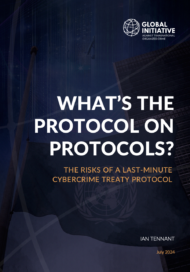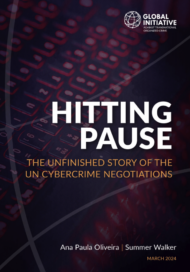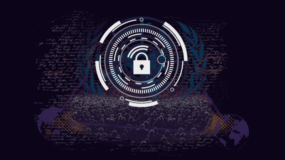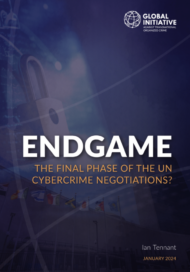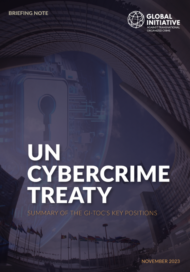Posted on 12 Jul 2024
As the reconvened session of the Ad Hoc Committee for the UN cybercrime convention approaches from July 29 to August 9, 2024, this brief delves into the potential risks of introducing a supplementary protocol on ‘additional crimes’ at this late stage. The negotiations, which began in January 2022, have been marred by significant disagreements among member states, particularly on the scope of crimes to be covered by the proposed convention.
One idea now gaining support among countries seeking a broad scope of crimes in the convention (a bloc led by Russia) is to begin a process of drafting a protocol to the convention – a supplementary agreement that would add a list of ‘additional crimes’ to the original treaty – even though the text of the convention itself is not yet final. Drawing comparisons to the negotiation process of the UN Convention against Transnational Organized Crime (UNTOC), the paper highlights crucial differences in political, practical, and legal contexts.
The UNTOC committee successfully negotiated three protocols in parallel with the main convention from the outset. In contrast, the Ad Hoc Committee on the cybercrime convention has not yet dedicated any time to protocol negotiations, making the current proposal unprecedented and risky. Introducing a new protocol at this stage could broaden the convention’s scope prematurely, potentially leading to human rights abuses and further complicating the already contentious negotiations.
Settling the primary scope of the convention is crucial before considering additional protocols. This approach would ensure a more stable and focused foundation for addressing cybercrime on an international scale. Moreover, the brief suggests that any future protocols should be evaluated for their potential added value and their alignment with the core objectives of the main convention.
The upcoming session is a pivotal moment for the UN cybercrime convention. As member states prepare for this critical discussion, our report serves as a timely reminder of the complexities and potential pitfalls of the proposed supplementary protocol. By learning from the UNTOC’s negotiation process, states can navigate these challenges more effectively and work towards a more coherent and robust international framework for combating cybercrime.
